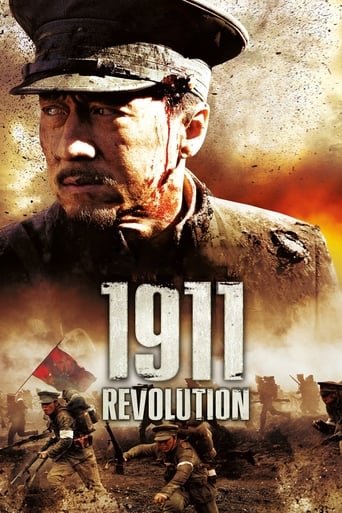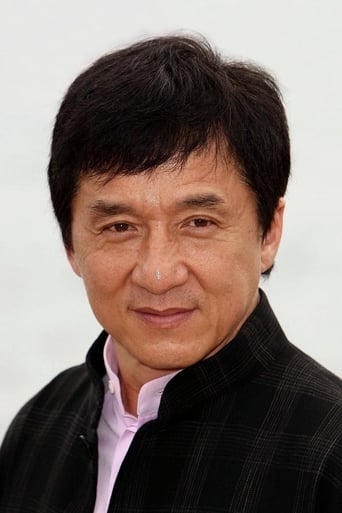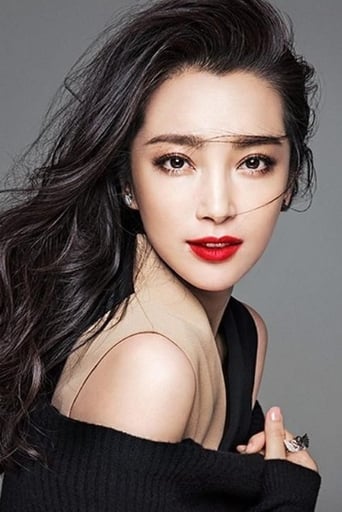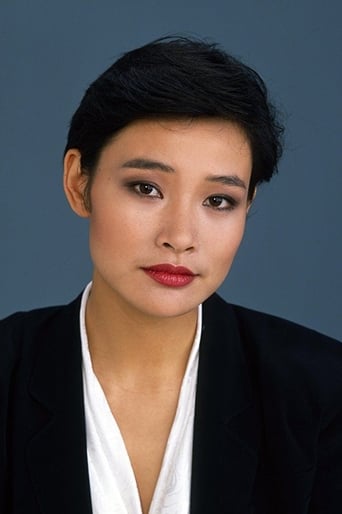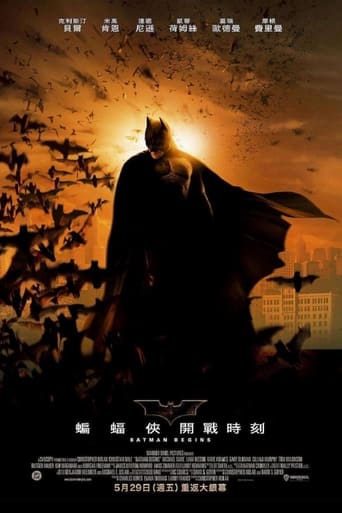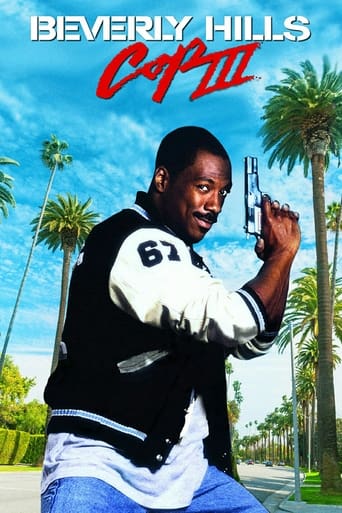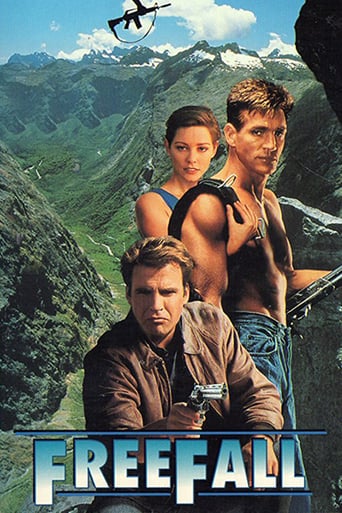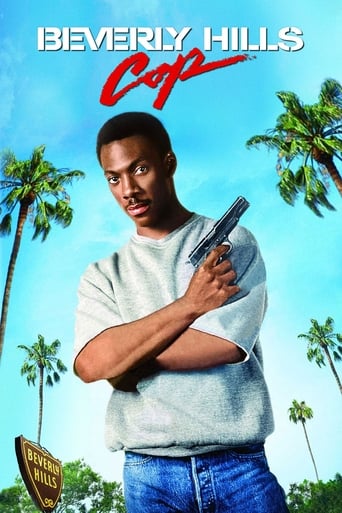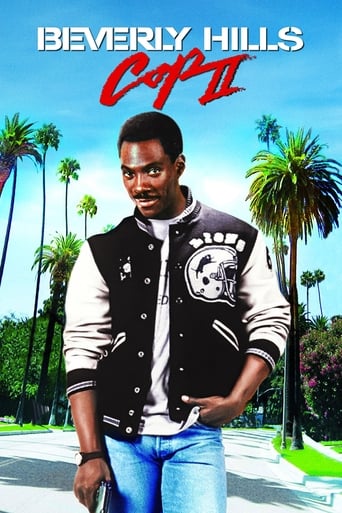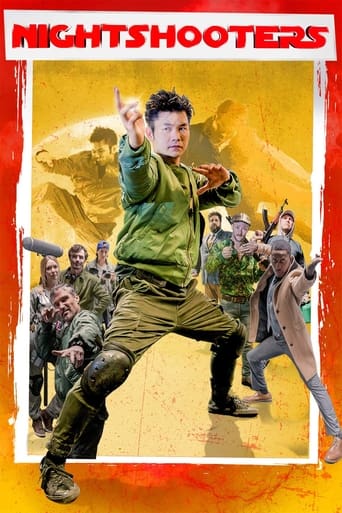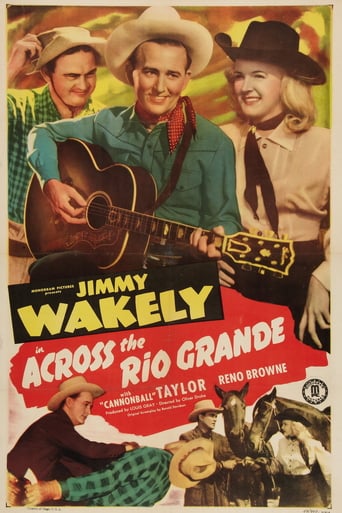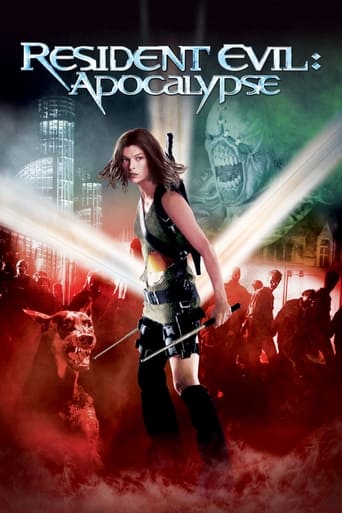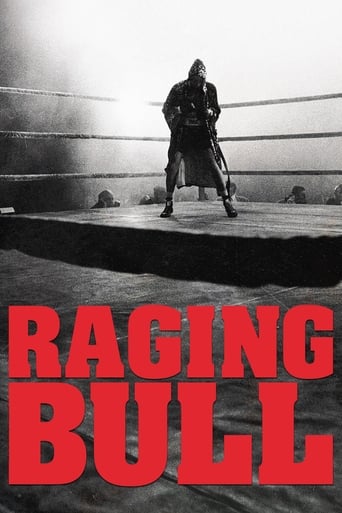1911 (2011)
China's first President Sun Yat-Sen and military commander Huang Xing lead the revolutionary Wuchang Uprising in a bid to put an end to the reign of the Qing Dynasty.
Watch Trailer
Cast


Similar titles
Reviews
The movie starts with a failed battle in the Revolution. The reasons why the Qing dynasty is being deposed is not mentioned until later in the story and then only in abstract fashion. Much of the movie concentrates on overseas Chinese money funding the revolution as well as the attempts to stop foreign investors from loaning money to the Qing dynasty. This gives you a behind the scenes look at a revolution.The movie was littered with patriotic slogans and noble causes to the point it interfered with the smoothness of the production as a historical piece into a modern Chinese patriot production. The message of the revolution is of self sacrifice for the good of the nation and don't forget to keep sending those dollars back home. I felt lost a few times during the film and that the producers of the movie had less historical integrity than an Oliver Stone film. The attempt to make heroes out of everyone who participated in the revolution was over done. I kept waiting for them to cut off the emperor's head and parade it through the streets and then I got really disappointed. Seems the Chinese are not French. I could never relate to the characters.
Made to coincide with the centenary of the original event, 1911 REVOLUTION is a film that celebrates China's rise from the tyranny of the Qing dynasty into the modern era. It's an unashamedly patriotic movie, with clear-cut heroes and villains, and one that seeks to portray a politically complex situation in a massive country, on an international scale, in the space of two hours. The resultant film is an educational ride and historically interesting, but one that falls down when it comes to the basic facets of movie-making.The film tries to be both a gutsy war film dominated by explosive battle sequences and a compelling political epic, featuring scenes from both sides involved in the revolution. Unfortunately, the editing is quite choppy and the battle scenes, although technically proficient, end up disappointing as you're left wanting more. Characterisation is virtually nil; Jackie bags the best role as the rebellious leader and has a few great action scenes, but everybody else feels like a player in a historical drama, never really coming to full life as they should. There are lots of familiar Chinese actors in various parts, but none of them make much of an impact here.It's a shame, because there's a film with a similar focus, set five years previously, called BODYGUARDS & ASSASSINS, and I found it absolutely spellbinding. That movie manages to mix in the political intrigue and dramatic backdrop of the situation while at the same time telling a rollicking, action-packed storyline filled with melodrama and excitement. Yes, it was silly and over the top in places, but I'd rather that than this slightly stuffy and occasionally lifeless production that fails to engage the senses along with the intellect.
A story about the 1911 Chinese Revolution headed by Sun Yat Sen, which overthrew the Qing Dynasty, tries to cover too much ground for those unfamiliar with its details. It races over three continents with a cast of thousands, concentrating on several key figures, with some of the smallest titles on screen to tell you where and when you are in 1911/1912. It is quite confusing and, on DVD very difficult to follow the names of revolutionary heroes and changes of place and time - it is not told sequentially! However, one gets the gist of a powerful movement led by a small group trying to overthrow hundreds of years of history and a mighty (if decaying inwardly) imperial apparatus. Jackie Chan as part director and star (as the General who led the Revolutionary forces) is very good in a character role, but some of the others look a little po-faced as they play national heroes. The main strength of the film is the revolutionary rhetoric and the powerful battle scenes - leading the way towards the Great War (why did not the West look at how this war was fought before killing hundreds of thousands to learn lessons?!)- which grip and horrify in equal measure, and even manage to show some cowardice! A pity a much longer film or TV series was not attempted so that we Westerners could understand things a little better!
"1911" is NOT a movie about the Colt .45 semi-automatic Pistol."1911" was the year of a people's revolution in China. Like many modern revolutions (Iran), this one did not end well (Mao - though that was much later).1911 the movie is an historical drama based on the fall of the Qing Dynasty and China's first attempts at becoming a Republic. Jackie Chan co-directed and stars in a supporting role. There is one "Jackie-Chan-class" martial-arts scene, to placate his fans, having little to do with the plot. It involves little screen time, and is barely worth mentioning as fight scene or plot distraction. The camera loves Chan and he the camera. He nicely under-plays his character but has scenes where his familiar face and real acting chops anchor the movie for western audiences."1911" overlaps the time and events of the movie "Last Emperor of China" and spends considerable screen time in the Imperial Court. In "Emperor," we meet PuYi at age 2-3 when he becomes Emperor, then follow him into adulthood and old age. PuYi was a child of 5 in 1911.1911 was a genuine revolution a couple of decades prior to the battles that begat the time of Chairman Mao. If like me, you are barely aware of this period in Chinese History, this movie may give resolve to learn more. I have visited the rather large memorial to Dr Sun Yat-sen in Guangzhou. The Chinese Garden in Vancouver BC is an even larger memorial to him. In addition to political manoeuvrings, the movie is about the mud and the blood and the guts of a revolution. Beautiful young men and women thrown into the meat grinder for the cause of "freedom" - or so they had all hoped. The movie introduces many such young people, then returns to mourn them - brilliantly, I thought.The Qing Dynasty's end involved a couple of women serving as empresses / regents for about 50-60 years. I do not mean to say that it was a cause, only that it was an unusual fact. "1911" showed Empress Dowager Longyu (Xiao Ding Jing / Xizi) as more focused on comfort and fashion that affairs of state. Hard to know how real that was from 100 years later. She would have been 42-43 in 1911 yet the movie shows her as a much younger very beautiful woman (played by Joan Chen). Her beauty is borne out by other reports from earlier in her life, however she passed away in 1913 at 44, and later pictures suggest significant dental problems.PuYi, the "Last Emperor" was elevated to office at age 2 with affairs of state handled by a female Regent. From that day forward, PuYi was considered a living god with grown and powerful men kowtowing to his every whim. Probably bad for the psychological development of a 2 year old to say the least. I thought that 1911 showed this adequately.An Emperor / Empress had total control to manage the affairs of state, and it would be the same for a Regent acting in his or her name. Like root/administrator access on a Linux/Windows Server that can work very well indeed if the administrator knows what s/he is doing. However that level of control can also destroy the system almost as easily through ignorance - or simple bad luck.The political insulation and bureaucratic "plaque" built up for Chinese emperors is difficult to imagine. With occasional changes of dynasty through warfare, the concept of divine royalty had governed China for 2,000 years. Behind high walls and gates, The Forbidden City/palace is nearly 8 million square feet (180 acres). The Vatican is about 3/5th as large, the Kremlin 1/3. It contains nearly 1,000 buildings and nearly 10,000 rooms. 9,000 people lived there to serve the imperial family. Only a select handful were allowed to even see the face of the emperor. If you weren't on that very short list the penalty for viewing his face was... death. Thus in modern dramas, you see high officials putting their faces to the floor when the emperor enters. That is by all accounts, quite real.We know how isolated some of US Presidents have been, especially the bunker mentality of Mr. Nixon or Mr. Johnson late in their time in office; however the isolation from the "(wo)man in the street" of these Presidents is probably less than 1/100th that of the Chinese Imperial Court, due to scale, tradition and technologies.Most of "1911" is in Mandarin with subtitles but you'll hear English where a scene is set in America's Chinatown or an aristocrat's gardens in England. At these garden parties, as European bankers would drink and dine and decide the fates of nations, Dr Sun Yat Sen lobbied them to stop loaning money to the Qing Dynasty. He succeeds, inhibiting their ability to buy weapons and pay soldiers. We also follow Dr. Sun as he travels to raise funds from the Overseas Chinese of America.Dr. Sun declared that he would serve as interim President of China after sufficient battle victories allowed formation of a legislative body, but that he would resign as soon as the Qing Emperor abdicated. This he did. The political reasons and consequences of that decision are a major part of the movie.Worth your time and money in theaters, but if that can't be worked into your schedule, be sure to rent it.Scott-Bob

